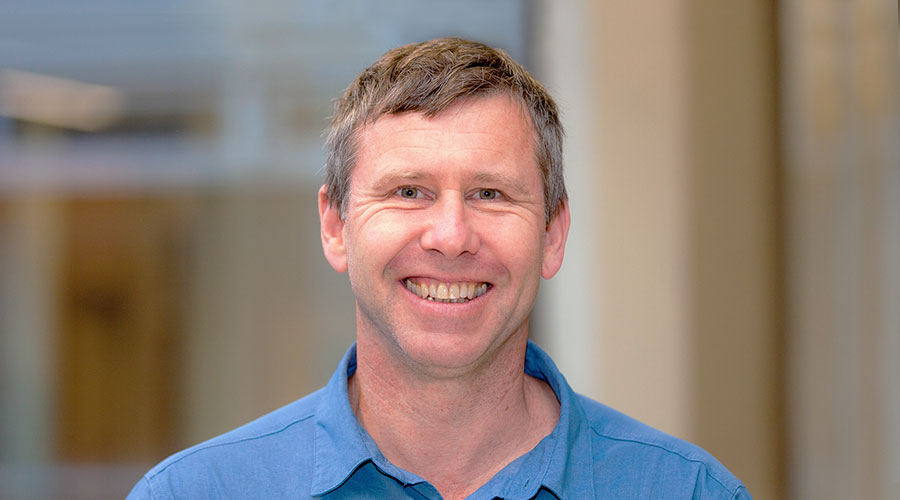| My Research Interest in RESIST |
Our research focus in RESIST is to understand the contribution of γδ T cells to the immune response that protects us from infectious disease. Specifically, we cooperate within the RESIST Consortium to monitor a fascinating but not very well explored type of T cells, namely γδ T cells, in the course of viral infections including hepatitis B and herpes virus infections. These projects are on the one hand designed to yield fundamental information about the biology of γδ T cells, and on the other hand, they should pave the way to design novel therapeutic strategies based on specific activation and adoptive transfer of γδ T cells.
In previous studies, we showed that throughout life, every person develops his/ her own very personal set of γδ T cells, which may contribute to different individual infection susceptibility. Over the course of the next six years, we would thus like to discover ways to manipulate and optimize individual γδ T cell repertoires with the goal to protect from pathogens and to prevent autoimmune disease.
Prof. Prinz about his scientific work
Prof. Dr. Immo Prinz – Curriculum Vitae
Current Position
Undergraduate and Postgraduate Training
Academic and Research Posts
Other Scientific Roles
Awards and Prizes

10 Selected Publications (of > 68 original publications)
Ravens S, Schultze-Florey C, Raha S, Sandrock I, Drenker M, Oberdörfer L, Reinhardt A, Ravens I, Beck M, Geffers R, von Kaisenberg C, Heuser M, Thol F, Ganser A, Förster R, Koenecke C*, Prinz I*. Human γδ T cells are quickly reconstituted after stem cell transplantation and show adaptive clonal expansion in response to viral infection. Nat Immunol. 2017; Apr;18(4):393-401 * Equal contribution.
Reinhardt A, Yevsa T, Worbs T, Lienenklaus S, Sandrock I, Oberdörfer L, Korn T, Weiss S, Förster R, Prinz I. IL- 23-dependent γδ T cells produce IL-17 and accumulate in enthesis, aortic valve, and ciliary body. Arthritis Rheumatol. 2016; 68(10): 2476-86.
Kashani E, Lisa Föhse, Raha S, Sandrock I, Oberdörfer L, Koenecke C, Suerbaum S, Weiss S, Prinz I. A clonotypic Vγ4Jγ1/Vδ5Dδ2Jδ1 innate γδ T-cell population restricted to the CCR6+CD27− subset. Nat Commun. 2015; 6: 6477.
Föhse L, Reinhart A, Oberdörfer L, Schmitz S, Förster R, Malissen B, Prinz I. Differential Postselection Proliferation Dynamics of αβ T Cells, Foxp3+ Regulatory T Cells, and Invariant NKT Cells Monitored by Genetic Pulse Labeling. J Immunol. 2013; 191(5): 2384-92.
Ziętara N, Łyszkiewicz M, Witzlau K, Naumann R, Hurwitz R, Langemeier J, Bohne J, Sandrock I, Ballmaier M, Weiss S, Prinz I*, and Krueger A*. Critical role for miR-181a/b-1 in agonist selection of invariant NKT cells. Proc Natl Acad Sci U S A. 2013; 110(18): 7407-12. * Equal contribution.
Haas JD*, Ravens S*, Düber S, Sandrock I, Oberdörfer L, Kashani E, Chennupati V, Föhse L, Naumann R, Weiss S, Krueger A, Förster R, Prinz I. Development of IL-17 producing gamma-delta T cells is restricted to a functional embryonic wave. Immunity. 2012; 37:48-59.
Koenecke C*, Lee CW*, Thamm K, Föhse L, Schafferus M, Mittrücker HW, Floess S, Huehn J, Ganser A, Förster R, Prinz I. IFN-γ production by allogeneic Foxp3+ regulatory T cells is essential for preventing experimental graft- versus-host disease. J Immunol. 2012; 189(6): 2890-6.
Fleige, H, Haas J, Stahl F, Willenzon S, Prinz I*, Forster R*. 2012. Induction of BALT in the absence of IL-17 (Correspondence). Nat Immunol. 2011; 13(1): 1. * Equal contribution.
Chennupati V, Worbs T, Liu X, Malinarich FH, Schmitz S, Haas JD, Malissen B, Förster R, Prinz I. Intra-and intercompartmental movement of gammadelta T cells: intestinal intraepithelial and peripheral gammadelta T cells represent exclusive non-overlapping populations with distinct migration characteristics. J Immunol. 2010; 185(9): 5160-8.
Prinz I, Sansoni A, Kissenpfennig A, Ardouin L, Malissen M, Malissen B. Visualization of the earliest steps of gammadelta T cell development in the adult thymus. Nat Immunol. 2006; 7(9): 995-1003.

